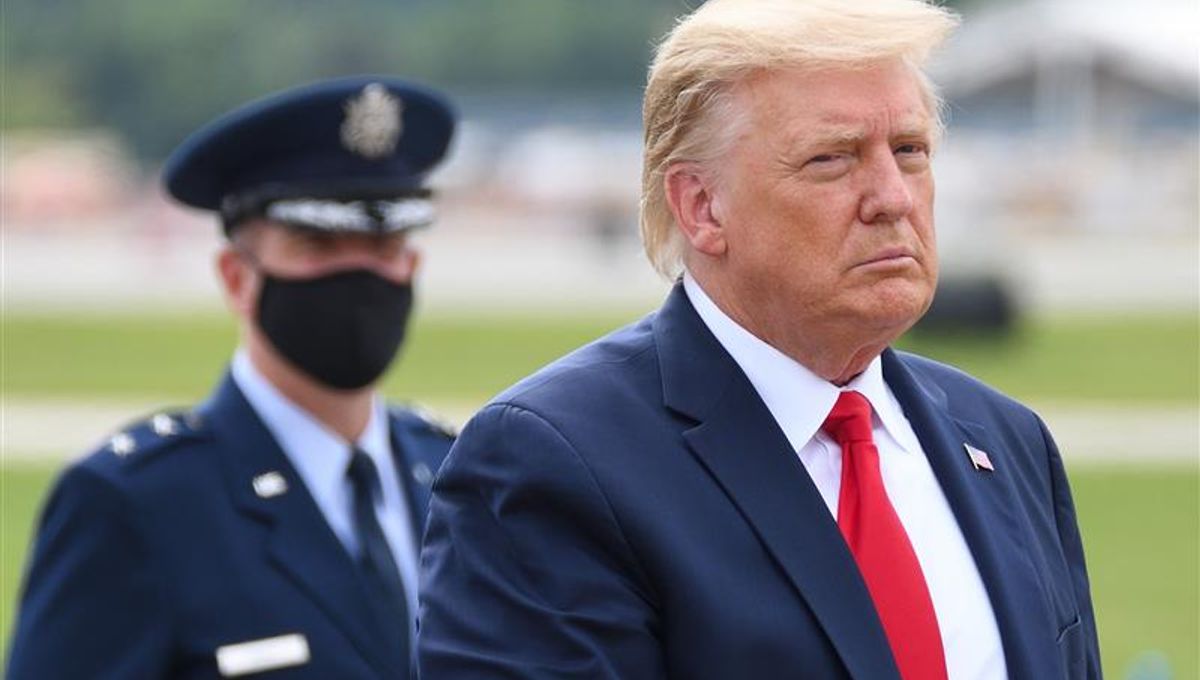
Despite his repeated attacks, public trust in scientists and science as an institution actually rose during the US presidency of Donald Trump. Although it is true that mistrust certainly increased across the US, and that views on certain topics have become deeply polarized, any modest rise in mistrust was actually offset by greater trust across the political spectrum.
For individual citizens to make informed decisions, they need access to trusted and reliable information. This is why freedom of the press and freedom of information are so important for a functioning democracy. With the arrival of the internet, citizens are thought to have been empowered to never-before-seen levels whereby they can more or less find information on issues important to them in real time.
However, in what is popularly referred to as the “post-truth” era, this concept of “public trust” has become a principal concern for many people and institutions. Accusations of conspiratorial deceit, bias, and the proliferation of “fake news” are seemingly a mainstay of the political arena, especially since the COVID-19 pandemic.
Throughout his presidency, Donald Trump and his administration consistently attacked and sought to undermine public trust in American scientific and health institutions, including the Centers for Disease Control and Prevention (CDC) and Anthony Fauci, the then head of the National Institute of Allergy and Infectious Disease at the National Institutes of Health.
But did this sustained opposition to science generate as much public mistrust as is commonly believed? Well, perhaps not.
In a new study, Jon D. Miller, from the International Center for the Advancement of Scientific Literacy, University of Michigan, and colleagues investigated three questions related to understanding US public attitudes towards science. The first two were related to whether the public’s attitudes should be conceptualized as single or multi-dimensional, and what are the factors that relate to or predict citizen attitudes.
The third question then examined whether the persistent attacks on science during Trump’s presidency changed citizen attitudes towards science and technology.
To address these questions, the team examined data collected from national probability surveys of US adults over the last 60 years. However, for the third question, they paid particular attention to survey responses collected from just under 3,000 US participants in 2016 (just before Trump’s election) and in late 2020 (nearly a year into the pandemic).
During this time, so the results suggest, the share of people with no strong opinions on whether they trust information from scientists or scientific institutions dropped dramatically from around 76 percent to only 29 percent. These formerly “neutral” parties appear to have migrated to either end of a trust spectrum, but not in equal measure.
The number of participants who expressed low (2 percent) or very low (1 percent) trust in science and its experts grew to 9 and 6 percent respectively in those years, but those who had high or very high faith in science rose from 23 percent to 43 percent.
These shifts occurred across the political spectrum. Contrary to what some may expect, conservative Republicans’ views were split, with an almost 20-point rise in very low and low levels of trust in science (which rose to 24 percent), but also a roughly 21-point rise in those who expressed high and very high trust (which rose to 37 percent).
Liberal Democrats experiences a massive surge towards more trustfulness during this time. In 2016, only 42 percent of those surveyed expressed high or very high trust in science, but by the end of 2020, when Trump’s term was concluding, this had risen to almost 87 percent. There were those who expressed low and very low trust, but this only rose from 2 percent to 3 percent.
“The attacks on science and the dismissal of climate change as a serious problem by President Trump and his administration were unparalleled in the postwar years and numerous members of the scientific community expressed concern that [trust] between the scientific community and the public was deteriorating”, Miller and colleagues wrote.
“The results [of our research] indicate a solid and growing level of citizen belief in the promise of scientific and technological research and a modest level of concern about harmful consequences. We believe that this balance of positive expectations and limited concern is a healthy situation in a democracy.”
In fact, as they state, the “absence of any concern would be unrealistic and a level of very high concern would be limiting and harmful to science.”
On balance, the research indicates that there was a slight increase in people expressing trust in science and scientific expertise during the Trump administration. Miller and his team added that these results complement their earlier research focused on trust in expertise during the COVID-19 pandemic. Across a number of studies from 2022, they found that trust in scientific expertise contributed significantly to support for President Biden from both moderate and independent voters in 2020.
“In short, the support of American citizens for science and technology has remained positive for the last six decades and the Trump Administration did not” undermine it. However, the authors conclude, “the challenge of right-wing populism did not stop with the end of the Trump Administration and will undoubtedly continue in the decades ahead.”
“Battles will continue, but the scientific community’s reserve army is active and effective.”
The study is published in the journal Science and Public Policy.
Source Link: Trump's Attacks On Science During His Presidency Didn't Have The Desired Effect